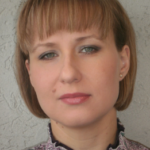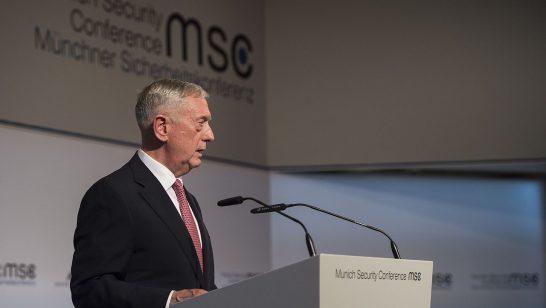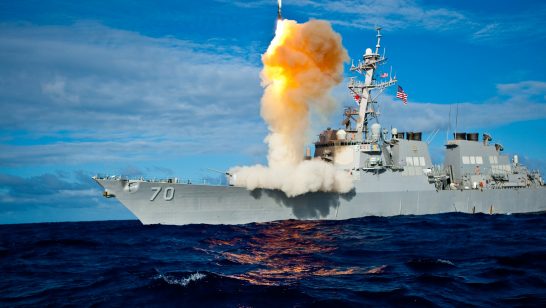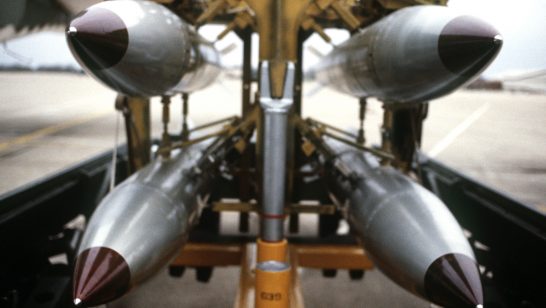
Some have argued, since Donald Trump, has taken office, that arms control may be an area where the US and Russia can re-engage. However, the idea of “re-launching” an arms control dialogue between Washington and Moscow may not be the best place to start for improving bilateral relations. This is for three reasons:
First, the Russian audience still remembers the awkward moment when the US State Secretary Hilary Clinton presented the offer of a “reset” to Sergey Lavrov during the first bilateral meeting. The mistake at that time was the use of the Russian word “overload” rather than “reset”. This was symbolic. Despite the US having a long and rich experience of Russian/Soviet Studies, that mistake showed that in-depth knowledge of Russia was not easily available in the US in 2009.
Second, Russians had high expectations from the symbolic “reset.” The higher expectation, the bitter the disappointment and the harder it is to move on.
Third, the New START negotiations showed that there was a generation gap in arms control experts who would actually implement the “reset.” Both the Russian and the American negotiators admitted that there was a lack of young and middle-level professionals to contribute to the process.
In current conditions, the arms control, disarmament and non-proliferation agenda risks becoming a victim of bitter political tensions between Russia and the Western countries. Therefore, Russia, European countries, and the U.S. need to continue routine cooperation on arms control issues. No rush is needed, and no unrealistic expectations – just regular work on maintaining the existing arms control regimes. The prospects for new agreements are vague. When the future is unclear, the best thing to do is preserve what we already have.
The next small step might be extending the New START Treaty until 2026. New START provides a legal framework for regular on-site inspections, data exchanges, notifications and other transparency and confidence building measures. Let’s hope that President Donald Trump and his Administration will wisely manage the legacy which they inherited from the predecessors.
Beyond the New START, the future of INF treaty is in question. Russia and the U.S. should continue to meet within the framework of the Special Verification Commission which, according to the Article 13 of the INF Treaty, was established to “resolve questions relating to compliance with the obligations assumed; and agree upon such measures as may be necessary to improve the viability and effectiveness of this Treaty.” The degradation of the existing bilateral U.S.-Russian arms control regimes, including INF, may lead to an uncontrolled arms race.The meetings of the Special Verification Commission held on a regular basis may serve as a shock-absorbing mechanism for the INF Treaty in the times of rapid political and technological changes.
Without taking into consideration the factors that affect broader strategic stability, any further progress towards nuclear arms reduction will be impossible. Russian officials keep repeating that when discussing hypothetical steps towards further reductions of nuclear armaments, the possibility of deployment of weapons in outer space should be addressed. Revitalization of a fruitful dialogue regarding the prevention of arms race in space might be in line with the efforts of those European countries which call for limiting modern weapon systems and new methods of warfare.
European security regime is going through hard times. Therefore, any initiatives promoting dialogue and confidence building between Russia and the European countries are welcomed. Regular consultations guided by the principle of equal and indivisible security for all the countries would be valuable in and of themselves. Starting with small steps, such as discussing what each side perceives as threatening actions from the other side, may lead into a road towards a new European arms control regime.
What specific role can Europe play in any future of arms control negotiations and cooperation?
Firstly, the experience of Soviet-American and later Russia-U.S. nuclear arms control agreements should be studied properly. Some elements of the bilateral transparency and confidence-building measures adopted by Moscow and Washington may be implemented by France and the UK. It is essential (also for the future of the NPT regime as such) that the further process of nuclear arms reductions becomes multilateral. France and the UK might themselves initiate work on tailoring to their needs a multilateral transparency and confidence building mechanisms like the ones that exist in the framework of U.S.-Russian START Treaty provisions.
Secondly, some of the most active part of the European civil society has adopted the position of “now or never” regarding the next steps towards nuclear disarmament. However, there exists a variety of security narratives which should be taken into account to have a comprehensive and objective analysis of the situation. Hence, the public dialogue regarding the future of nuclear arsenals needs to be multilateral, involve younger generations from all countries and allow arguments of various experts to be heard. The more voices can be taken on board, the more effective public debate on disarmament will be.
Thirdly, global mass media are often engaging in rhetoric about Russian “nuclear threat” in pursuit of sensational headlines. Each time the West accuses Russia of aggressive intentions, those inside Russia who claim that Russia is under siege and needs to protect its national interests by any means receive an additional boost of support from the Russian audience. In such circumstances, few experts dare to raise the question whether modern Russia really needs all elements of its nuclear arsenal and all the modernization programs to protect its national interests. The more professionally and responsibly the European media cover security issues, including Russia’s position on nuclear weapons, the more sustainable environment for a respectful international dialogue we will have.
In the area of arms control and disarmament, we do not need ambitious projects that might burst like a soap bubble. What we should have instead is a sustained multi-level dialogue that will lead to small but steady steps towards a safer world.
The opinions articulated above represent the views of the author(s), and do not necessarily reflect the position of the European Leadership Network or any of its members. The ELN’s aim is to encourage debates that will help develop Europe’s capacity to address the pressing foreign, defence, and security challenges of our time.



